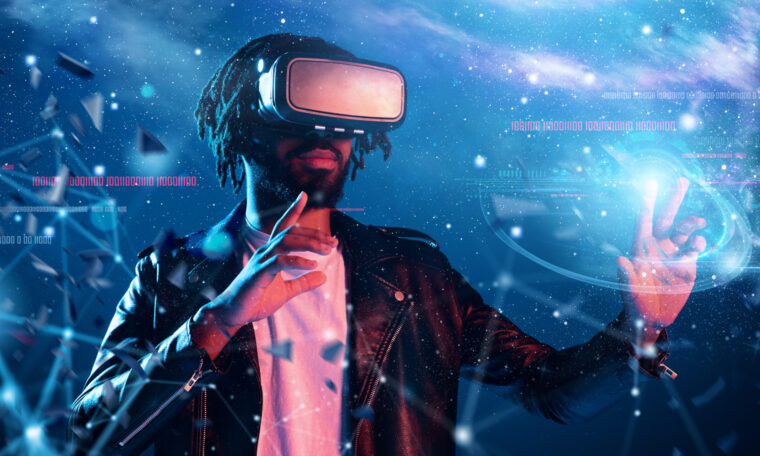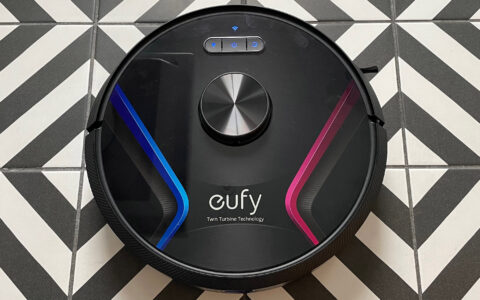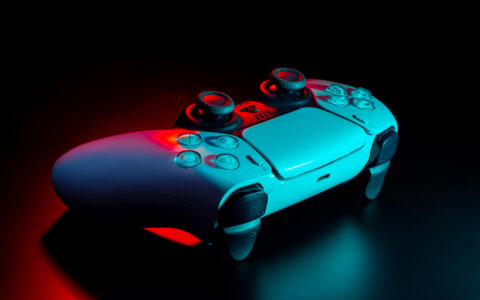
[ad_1]
PC gaming has had a turbulent history. It gained popularity following the video game crash of 1983, an event caused by an overabundance of consoles and poor-quality games, and despite losing popularity again in the 1990’s thanks to a console comeback from the likes of the original Sony Playstation and Nintendo 64, PC gaming has successfully regained a stable place in the global market that’s only anticipated to keep growing.
If you feel out of touch and want to find out what’s currently considered ‘cool’, ask a kid what they want to be when they grow up. Two decades ago you’d likely get an answer like a footballer, actor or in my case, a paleontologist, and when we retrospectively look back it isn’t hard to see why. Popular athletes’ were plastered across almost every marketable product and dinosaurs were being bought to life (digitally speaking) by state-of-the-art CGI on TV and the big screen.
In my lifetime though, I’ve seen the answer to that question change dramatically (thanks to my small tribe of younger siblings), and while the usual mainstay replies of doctor, athlete, and scientist still appear in surveys, kids are now increasingly likely to pursue a career in being a professional gamer, YouTuber, or streamer. While the latter two don’t necessarily correlate to just gaming, popular streaming and gaming influencers like Markiplier, Dream, and Ninja have won the hearts of children who watch their content, and understandably want to emulate their heroes.
(Image credit: ESPN)
In fact, these days you’ll see worlds collide when it comes to video gaming, particularly when the PC gaming community is involved. From politicians like Alexandria Ocasio-Cortez playing Among Us with some of the biggest streamers on Twitch, to actor Henry Cavill recording himself building his personal rig, the exclusive and expensive world of gaming PCs and laptops is gaining new members daily.
This is hardly the sole reason that popularity for PC gaming has exploded over the last few years, but it likely plays a part and the demand for computing hardware is undeniable. A report published by Jon Peddie Research back in 2020 suggested that the PC gaming hardware market would rise by $3.6 billion to a value of $36.9 billion by the end of last year. Not only did it hit that target, but a new estimated value of $45.6 billion is projected by the end of 2021 despite the ongoing hardware shortages and the global Covid-19 pandemic.
We’ve come a long way since games like the original Microsoft Flight Simulator was released back in 1982. The 2020 version of the flying simulation game now looks scarily hyper-realistic, and with Esports tournaments filling arenas and virtual reality chatrooms appearing online, it’s hard to imagine where PC gaming can go from here.
All work and all play
(Image credit: Shutterstcok / Friends Stock)
I spoke to EMEA Alienware & Dell Gaming Manager James Jones about the rise of PC gaming and what the future may hold for the industry. Alienware, for anyone unaware, has been a highly recognizable brand in the gaming community since it was founded back in 1996, and was notably purchased by computing giant Dell in 2006.
Using only my personal experience, it seems a lot of people gravitated towards buying a gaming PC or Laptop when working from home during the Pandemic. Has Dell Alienware seen a similar pattern of PC gaming permeating the greater market like this?
“We are seeing more, especially in the entrepreneurial-type businesses and self-employed individuals. The status quo of a typical office system doesn’t always represent those brands, so they’re looking at alternative devices, and with gaming machines having such a range between RGB, flashy designs to something more subtle, we’re seeing preferences in those small and midsize business customers looking at gaming products” replies Jones. “The last 18 months has really driven momentum around not just PC purchases, but also gaming, and I think the key thing to take from that is because of the pandemic and the work from home / stay at home culture, it’s given a sense of escapism to not just traditional gamers but also regular people.
“It’s also given people a chance to collaborate and communicate while being locked at home and unable to go out, especially for younger folk and students. To give a personal example, my son is 15 and he was obviously going crazy being at home all the time, but the ability to dial in and forget about school and the day-to-day challenges while playing games with his friends is almost like they’re virtually together. I think that’s driven a lot of people who are new to gaming or hadn’t previously experienced gaming to give it a try.
I think that’s been the biggest trend, that ability to escape, communicate and collaborate that’s driven this surge rather than people simply wanting to game. If you look at the kind of games that people are playing, they’re mostly about collaboration and teamwork rather than individual siloed offline games.”
Everyone’s doing it
(Image credit: Henry Cavill)
It’s interesting that demand for PC gaming has risen so dramatically despite the ongoing component shortages and the difference in cost vs the new generation of consoles. What do you think has been the driving force behind this?
“ Laptops are seeing growth as the technology develops, with new systems being lighter and slimmer than ever before thanks to internal components shrinking” Jones says “that said, the pandemic has been a huge driving force for desktop pc gaming too, and saw incredible year-on-year growth, and that came about because you were physically unable to go. We spoke to gamers and asked what their key priority was, and most said the experience.
“With a desktop, you can add larger displays (which have also seen a boom in popularity), allowing you to watch or stream content on one while you’re playing a game on another. You get the experience of not just utilizing it for gaming, but also streaming. We’re seeing a lot of crossover with that now. You’ll also find that given the expense of gaming hardware, people who can typically afford a high-end gaming laptop or PC will also own a console, so they’re not always exclusive.”
Do you think celebrities and influencers have contributed to this rising popularity? Esports stars like Team Liquid obviously come to mind, but even actors like Henry Cavill are well known in the PC gaming scene
“The perception of who a gamer is has changed” Jones nods, adding “And with so many high profile sports stars and personalities that are utilizing gaming, that can only be a good thing. It’s a positive that they’re then reaching their audiences that may not have experienced gaming, or have some notion that it’s all just about flashing lights and young men in dark rooms and it’s not about that – it’s about inclusiveness”
Several famous athletes have been quoted to own a gaming PC, with England and Aston Villa footballer, Tyrone Mings claiming that “Since switching to PC gaming, I’ve been even more addicted to Warzone. I’m still using a controller but will eventually take the plunge and head for a keyboard and mouse so I can mix it with the proper elites. Warzone is all about those milliseconds and fine margins and the Alienware PC gives me the upper hand when I’m carrying my squad. The graphics are a joke, you can see everything so clearly and quickly”
Toxicity is still prevalent
(Image credit: Shutterstock / Monkey Business Images)
It’s great that we’re starting to see influencers for PC gaming that don’t resemble the Comic Book Guy from The Simpsons, but there’s still a lot of work to be done. Pulling from my own experiences as a woman who grew up subjected to gaming communities, there are barriers that cause understandable hesitancy for girls, POC, and LGBTQ+.
I love PC gaming, but we know it’s not without its community issues, especially regarding toxicity. Is Dell doing anything to help PC gaming become a more inclusive space, or would you consider doing so in the future?
Jones asserts “Absolutely, and it goes beyond just gaming and gaming systems. Overall, the ability to hide behind a keyboard in other places like social media is the darker side of technology. As an organization, Dell Alienware is very keen on inclusiveness and supporting each other, both internally and externally. It falls within our code of conduct, and it’s a key benchmark we meet, but we also have that in mind when we reach out to partners and customers.
“We have a few things that have launched recently such as working with a lot of charities to educate about online safety to young students, coaching them about the dos and don’ts of the internet. Gaming falls within that too, and another thing we have is the Good in Gaming initiative that we launched with Team Liquid”
Good in Gaming is, as mentioned, a collaboration project between Alienware and Esports giants Team Liquid to help give everyone the young gamers to pursue a career within the gaming industry, offering mentoring, internships, and scholarships.
The future of PC gaming
(Image credit: Nvidia)
PC gaming has come a long way in a very short time. What predictions do you have for where PC gaming will be in 10+ years?
“We’re going to start seeing more of ‘gaming as a service’ type subscriptions like Xbox Gamepass and of course, cloud gaming which will mean from a hardware perspective that people won’t need anything super powerful like a beefy CPU or GPU. That’ll enable people to game more freely on mobile devices or in a docked-style device like the Alienware UFO prototype”.
The response to the Steam Deck’s announcement clearly shows the consumer demand for a truly portable PC gaming experience, and while Valve’s upcoming handheld is still restricted by its hardware, it isn’t farfetched to think that as public internet infrastructure improves, we might all be playing a newly released AAA game on a tablet or mobile phone in the next few years.
This future accessibility is a good goal to work towards, and I remain hopeful that affordability will be kept in mind with these developments to allow people who are currently priced out of the current gaming market because of the upfront cost of the hardware to get involved. As James Jones said, an appeal of PC Gaming, in particular, is the community aspect of it outside of just playing games, with friends being made over Discord servers and through Twitch chats.
New excitement developments are made every year that could make improved online accessibility a reality, and gaming will evolve alongside that. It’s hard to say exactly where computing specifically will take us, but I’m hoping that I can spend my retirement years fully submerged in a virtual reality that resembles Ready Player One more than something nefarious like The Matrix.
Today’s best Gaming Laptops deals
[ad_2]
Source link




